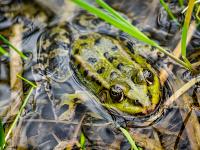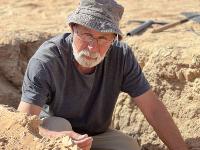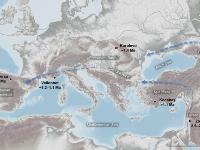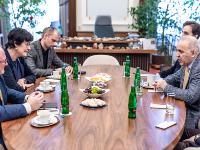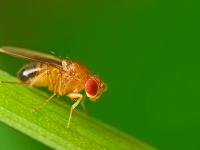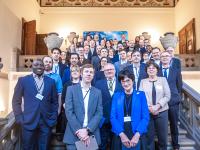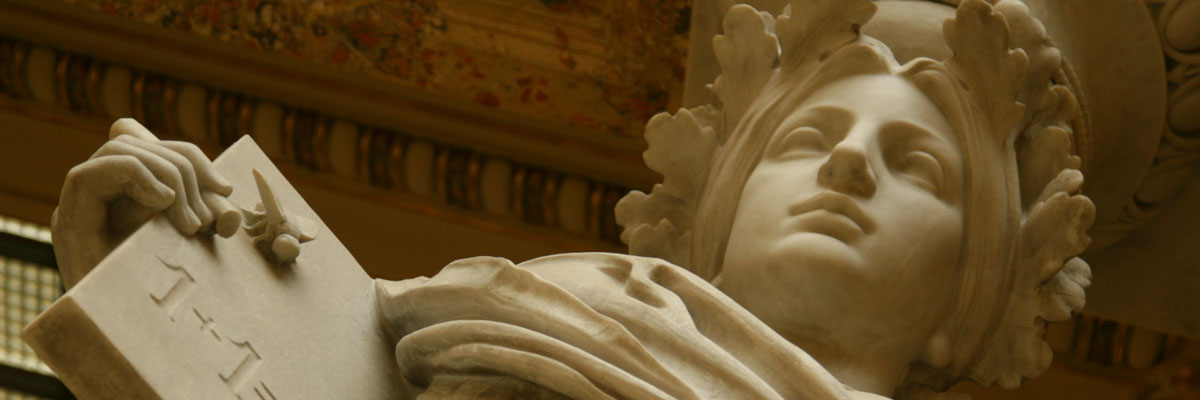
News archive
Search
Selected range: all newsWe use our eyes to acquire over 80 percent of all information from our surroundings. Why is it sight that has prevailed over our other senses? How come we don’t go crazy from the influx of visual stimuli? And what actually sticks? Filip Děchtěrenko from the Institute of Psychology of the Czech Academy of Sciences (CAS), whose focus is visual perception, attention, and memory, knows the answers. An article about his research was published in the quarterly CAS A / Magazine.
The Academy’s historic first “AKAtournament” in badminton showcased sporting talents (not only) from among scientists. On Sunday, 24 March 2024, 76 colleagues from various institutes of the CAS gathered to test their skills in three categories: men’s singles, women’s singles, and mixed doubles. As expected, the best emerged victorious.
Only male edible frogs live in the Poodří region, with no females present. Even so, these frogs still reproduce with the help of partners from another frog species. This remarkable reproductive strategy that avoids mixing genetic information from both parents has now been confirmed by scientists from the Institute of Animal Physiology and Genetics of the CAS in another species of frog found in France and Spain. The researchers described the phenomenon in the journal Genome Biology and Evolution.
World Water Day is held on 22 March, declared by the UN in 1993 to remind us of the importance of this liquid substance vital for our entire planet. Saying that life on Earth wouldn’t exist without it may be a cliché, but it’s true. Water has been a constant companion of Martin Pivokonský from the Institute of Hydrodynamics of the CAS all his professional life. Is there anything new left to be learned about water? The article below was originally published in Czech in the quarterly A / Magazine of the CAS.
Not everyone is lucky enough to work on a discovery that is of a textbook-rewriting nature, altering the existing knowledge of human history. However, Vitaly Usyk, who co-authored a groundbreaking new study published in Nature, has succeeded. The experienced Ukrainian archaeologist is part of the international research team that has managed to securely date the stone tools found at an archaeological site near the town of Korolevo in Transcarpathia, Ukraine. Thanks to the Researchers at Risk Fellowship programme of the Czech Academy of Sciences (CAS), the scientist now works at the Institute of Archaeology of the CAS in Brno. How did he first become involved with the CAS and what other projects is he working on?
When did members of the genus Homo first appear on the European continent after leaving Africa? Until now, the caves in Atapuerca, Spain, and Vallonnet, France, were regarded as the first inhabited locations in Europe (1.2–1.1 million years ago). However, new findings date the first human presence to 200–300 thousand years earlier in present-day western Ukraine. Evidence of the earliest hominin settlement comes in the form of stone tools found at the archaeological site of Korolevo. The groundbreaking results of the discovery, worked on by an international team led by Roman Garba from the Nuclear Physics Institute of the CAS and the Institute of Archaeology of the CAS in Prague, were published on 6 March 2024 in Nature.
Garry Kasparov, the world-renowned chess grandmaster and former world chess champion, Russian political activist in exile and opponent of Vladimir Putin’s regime, was received today at the Czech Academy of Sciences by its President, Eva Zažímalová, and Member of the Academy Council, David Honys. The Academy was one of the few places Kasparov visited during his three-day stay in Prague.
War, persecution, and human rights violations threaten scientists not only in Ukraine, but in other parts of the world as well. That is why the Researchers at Risk Fellowship programme is now open to scientists from all countries where freedom of research is not guaranteed. The second call was launched by the Czech Academy of Sciences in January, and applicants can apply until 29 February 2024.
While there are 2.1 million described animal species in the world, about one quarter of them face extinction. Which ecological communities will survive? Are those with a more diverse constitution more resilient? And how does nature actually maintain its diversity? The answers to these questions are being sought by entomologist Jan Hrček from the Biology Centre of the CAS, who was the only Czech to receive the prestigious ERC Consolidator Grant in 2023. The story (below) about his research was published in the quarterly A / Magazine of the Czech Academy of Sciences.
Discussed topics included sustainable agriculture, biodiversity conservation in the age of climate change, and epigenetic therapy for cancer, neurodegenerative diseases, and diseases of civilisation. Opening remarks were made by the President of the CAS Eva Zažímalová and David Honys from the Academy Council as well as Ian Wiggins from the Royal Society. The event was held on 31 January and 1 February 2024 at the headquarters of the Czech Academy of Sciences on Národní Street in Prague.
The Czech Academy of Sciences (the CAS)
The mission of the CAS
The primary mission of the CAS is to conduct research in a broad spectrum of natural, technical and social sciences as well as humanities. This research aims to advance progress of scientific knowledge at the international level, considering, however, the specific needs of the Czech society and the national culture.
President of the CAS
Prof. Eva Zažímalová has started her second term of office in May 2021. She is a respected scientist, and a Professor of Plant Anatomy and Physiology.
She is also a part of GCSA of the EU.


